Words MAXMILIAN WECHSLER Photos of Ulaanbaatar and dancers by A. Giimel; Photos of scenery by B. Bayar
| SURROUNDED by a large tapestry of Genghis Khan, founder of the Mongol empire in 1206, as well as beautiful native carpets, dolls of Mongolian warriors and breathtaking photos of the Mongolian countryside, the new Mongolian Ambassador to Thailand H.E. Tugsbilguun Tumurkhuleg looks very much at home in his country’s embassy on Ekamai Road. The youthful ambassador is also very much at home in Thailand and Southeast Asia, having lived here twice in earlier times. |
“I visited Thailand for the first time in 1991. I was on the way to meet my parents in Laos and I stopped in Bangkok, spent a few days and continued on to Vientiane. My father was Mongolian ambassador to Laos from 1991 to 1996 and he also had responsibility for Thailand and Cambodia. For most of that time I stayed with my parents in Laos.
“When I was 20 I was accepted for a fellowship at Srinakharinwirot University in Bangkok. I studied Thai language there in 1994-1995, and I became very interested in Thailand and Southeast Asia. The city’s traffic was actually worse then than now because there was no Skytrain,” recalled the ambassador, whose fellowship program was under the Thai government’s Department of Technical and Economic Cooperation, now known as TICA (Thailand International Cooperation Agency).
“My first diplomatic posting in Thailand was from 2004 to 2007, as an attaché. I made many friends and I still have many connections here. I can understand everything in Thai, but as for speaking, reading and writing…not so well. Since Thai is a tonal language it’s a bit difficult. I didn’t spend that long formally studying the language and it was 20 years ago, but I am sure I will pick up from where I left off during my previous posting. I already know the basics. I can speak Russian, English and Mongolian, of course, and I can also understand French.
“I visited many parts of Thailand in the past and I hope to visit many more during my term as ambassador. Recently I went to Samut Songkhram and Samut Sakhon provinces. The trip was organized by the Ministry of Foreign Affairs for ambassadors and family members. It was a very useful trip and a good experience for me.
“I took up my post as ambassador to the Kingdom of Thailand on August 11. I am also permanent representative to the United Nations Economic and Social Commission for Asia and the Pacific (UNESCAP). My term will last three or four years. My last position before this was three years as the director-general of the Ministry of Foreign Affairs’ Department of Neighbouring Countries, which is in charge of China and Russia as well as the Shanghai Cooperation Organization (SCO), where we hold the observer status.
“While heading the department in charge of our two big neighbours, I take pride in having been involved in organizing the visits of the Chinese President Xi Jinping and Russian President Vladimir Putin to Mongolia in 2014, which took place within one month of each other, as well as organizing the first trilateral summit of heads of our three countries in Dushanbe, Tajikistan on the sidelines of the SCO Summit in September of the same year.”
Since his arrival in Thailand the ambassador has kept a fairly high profile and is frequently seen at various diplomatic functions and ministries. Recently he visited the Minister of Foreign Affairs Don Pramudwinai, who welcomed the ambassador and expressed this nation’s commitment to strengthening Thai-Mongolian relations and cooperation. The ambassador also met with the president of the National Legislative Assembly, Pornpetch Witchitcholchai, who also reaffirmed Thailand’s commitment to strong bilateral relations.
“When I was 20 I was accepted for a fellowship at Srinakharinwirot University in Bangkok. I studied Thai language there in 1994-1995, and I became very interested in Thailand and Southeast Asia. The city’s traffic was actually worse then than now because there was no Skytrain,” recalled the ambassador, whose fellowship program was under the Thai government’s Department of Technical and Economic Cooperation, now known as TICA (Thailand International Cooperation Agency).
“My first diplomatic posting in Thailand was from 2004 to 2007, as an attaché. I made many friends and I still have many connections here. I can understand everything in Thai, but as for speaking, reading and writing…not so well. Since Thai is a tonal language it’s a bit difficult. I didn’t spend that long formally studying the language and it was 20 years ago, but I am sure I will pick up from where I left off during my previous posting. I already know the basics. I can speak Russian, English and Mongolian, of course, and I can also understand French.
“I visited many parts of Thailand in the past and I hope to visit many more during my term as ambassador. Recently I went to Samut Songkhram and Samut Sakhon provinces. The trip was organized by the Ministry of Foreign Affairs for ambassadors and family members. It was a very useful trip and a good experience for me.
“I took up my post as ambassador to the Kingdom of Thailand on August 11. I am also permanent representative to the United Nations Economic and Social Commission for Asia and the Pacific (UNESCAP). My term will last three or four years. My last position before this was three years as the director-general of the Ministry of Foreign Affairs’ Department of Neighbouring Countries, which is in charge of China and Russia as well as the Shanghai Cooperation Organization (SCO), where we hold the observer status.
“While heading the department in charge of our two big neighbours, I take pride in having been involved in organizing the visits of the Chinese President Xi Jinping and Russian President Vladimir Putin to Mongolia in 2014, which took place within one month of each other, as well as organizing the first trilateral summit of heads of our three countries in Dushanbe, Tajikistan on the sidelines of the SCO Summit in September of the same year.”
Since his arrival in Thailand the ambassador has kept a fairly high profile and is frequently seen at various diplomatic functions and ministries. Recently he visited the Minister of Foreign Affairs Don Pramudwinai, who welcomed the ambassador and expressed this nation’s commitment to strengthening Thai-Mongolian relations and cooperation. The ambassador also met with the president of the National Legislative Assembly, Pornpetch Witchitcholchai, who also reaffirmed Thailand’s commitment to strong bilateral relations.
| Background Mr Tugsbilguun was born in the Algerian capital of Algiers in February 1974. “My father was a diplomat at the Mongolian embassy in Algiers when I was born. I don’t have Algerian nationality, however. Three months after I was born we went back to Mongolia, and we returned to Algeria when I was five. I stayed there until I was eight. “My father is fluent in French and therefore was mostly posted to French-speaking countries. He was posted twice in Algeria as attaché and then as second and first secretary. He served once in France as counselor and was an ambassador to Laos. “I started school in Algeria at a Soviet embassy school and in Mongolia I attended a Soviet secondary school in our capital of Ulaanbaatar. I got my BA in British Studies and International Studies at The National University in Ulaanbaatar, and earned a master’s degree at The Australian National University in Canberra.” The ambassador explained that Mongolia has 49 diplomatic missions around the world, including embassies, consulates and permanent missions to the United Nations. The Mongolian embassy in Bangkok was opened in 2000 and moved to the present location in 2006. “We have five staff – three Mongolian diplomats, including myself, and our driver who is also from Mongolia. Our secretary is a Thai woman. The embassy also looks after Myanmar and Malaysia. I haven’t visited these countries yet but after receiving my agreement I will go there to present my credentials. “In Southeast Asia we have embassies in Vietnam, Laos, Thailand, Singapore and Indonesia. The one in Jakarta is the most recently opened. Mongolia’s biggest embassies are in Beijing, Moscow, Washington, Tokyo and Seoul.” Asked why the embassy driver came from Mongolia, the ambassador replied: “This is not unusual for us. Everywhere around the world, we use our drivers.” |
Land of contrasts
Mongolia is a country rich in natural beauty in Northeast Asia between China and Russia.
“The climate is harsh with four distinct seasons,’’ said the ambassador. “The winters are cold and the summers are hot. The natural environment of Mongolia is also diversified. We have the famous Gobi Desert in the southern part and in the central and eastern part of the country we have steppes and plains. But in the north it is forests and in the west it is mostly mountains and lakes. Mongolia is a big country – 1,564,616 square kilometers – which is about one third the size of the European Union. But our population is only three million, with about 1.3 million living in the capital, Ulaanbaatar.
“Our capital is a very modern city, with all the conveniences and facilities you could ask for. Next year more than 50 heads of state will gather in Mongolia when we host the 11th Asia-Europe Meeting [ASEM] summit. This summit would be a historic one since it coincides with the 20th anniversary of founding of ASEM.
“The official language is Mongolian. The Russian language was widely used before 1990, and because Russia is our neighbour it is still popular now. But younger people now tend to study English, Japanese and Chinese.”
The Mongol Empire once included China under the Yuan dynasty, but later Mongolia came under the rule of the Manchu Qing dynasty. “We restored our independence in 1911; however it was reduced to autonomy under the Chinese suzerainty in 1915 and then, altogether was abolished in 1919. Therefore, in 1921 Mongolians won back their independence as a result of the victory of the People’s Revolution, also called the National Democratic Revolution.
“During the socialist era Mongolia’s foreign policy was closely aligned with the Soviet Union and Eastern Bloc. Since the 1990s, democracy and reforms have gained strong foothold in my country, and today we are conducting a peaceful, open, multi-pillar and pro-active foreign policy. I think this is very good. We still maintain very good relations with our two big neighbours.
“We have the concept of ‘Third Neighbour,’ relating to the United States and other major countries in Asia and Europe that support our reforms. It also includes the United Nations and other international organizations. Very recently our President, Tsakhiagiin Elbegdorj, declared Mongolia to be a neutral country at the United Nations.
“We are a neutral, non-aligned country located between two great powers and we also have a nuclear weapon-free status supported by P-5 (five permanent members of the UN Security Council). We have a declared policy of permanent neutrality, which is fully consistent with our national laws and international treaties to which Mongolia is signatory” said Mr Tugsbilguun. He added that Soviet troops were stationed in Mongolia during the Cold War, mainly in the 1960s to 1980s when the relations between the Soviet Union and China were very bad. “They were enemies. In this period Mongolia chose to side with the Soviet Union.
“Now, we have a balanced approach in this respect. Economically, there is a stronger relationship with China, which is the biggest investor and trading partner. But our principal foreign policy is to maintain a balance between our two neighbours and not to side with one against the other. So we have good relations with both countries. They are our strategic partners. Strategic partnership is the highest level of cooperation Mongolia has so far reached with a foreign country.
“However, it is premature to say that the development of relations with our two neighbours has reached its peak. There is huge potential to further boost our economic cooperation with Russia and China, given the complementary nature of our economies. Our geographic location has long been regarded as somewhat of a disadvantage, because we are a landlocked country with no direct access to the sea. However, today we tend to see our location as an advantage, bearing in mind that we are in between the world’s largest two markets. Besides that we also have a strategic partnership with Japan, and we don’t have political disputes with any country in the world.
Mr. Tugsbilguun added that Mongolia is becoming an active player on the international arena. “We are one of the key 20 countries contributing to global peace-keeping efforts. Mongolia has been involved in UN peace-keeping operations since 2002 and more than 11,000 of our military servicemen have served in various hotspots around the world. Today, we have 939 active servicemen including 72 women involved in UN peace-keeping missions.
“In addition, we are working very actively to promote peace and security in Asia-Pacific region by unleashing such initiatives as Ulaanbaatar Dialogue on North East Asia Security and the Forum of Asia. The UB Dialogue could be compared to Helsinki dialogue with the purpose of extending regional multilateral cooperation and dialogue, whereas ‘The Forum of Asia’ intends to create a common platform for all countries in Asia to launch a comprehensive and inclusive dialogue. In 2012 Mongolia joined the OSCE (Organization for Security and Co-operation in Europe) and very recently, we have successfully hosted the Autumn Meeting of OSCE Parliamentary Assembly.”
Mongolia is a country rich in natural beauty in Northeast Asia between China and Russia.
“The climate is harsh with four distinct seasons,’’ said the ambassador. “The winters are cold and the summers are hot. The natural environment of Mongolia is also diversified. We have the famous Gobi Desert in the southern part and in the central and eastern part of the country we have steppes and plains. But in the north it is forests and in the west it is mostly mountains and lakes. Mongolia is a big country – 1,564,616 square kilometers – which is about one third the size of the European Union. But our population is only three million, with about 1.3 million living in the capital, Ulaanbaatar.
“Our capital is a very modern city, with all the conveniences and facilities you could ask for. Next year more than 50 heads of state will gather in Mongolia when we host the 11th Asia-Europe Meeting [ASEM] summit. This summit would be a historic one since it coincides with the 20th anniversary of founding of ASEM.
“The official language is Mongolian. The Russian language was widely used before 1990, and because Russia is our neighbour it is still popular now. But younger people now tend to study English, Japanese and Chinese.”
The Mongol Empire once included China under the Yuan dynasty, but later Mongolia came under the rule of the Manchu Qing dynasty. “We restored our independence in 1911; however it was reduced to autonomy under the Chinese suzerainty in 1915 and then, altogether was abolished in 1919. Therefore, in 1921 Mongolians won back their independence as a result of the victory of the People’s Revolution, also called the National Democratic Revolution.
“During the socialist era Mongolia’s foreign policy was closely aligned with the Soviet Union and Eastern Bloc. Since the 1990s, democracy and reforms have gained strong foothold in my country, and today we are conducting a peaceful, open, multi-pillar and pro-active foreign policy. I think this is very good. We still maintain very good relations with our two big neighbours.
“We have the concept of ‘Third Neighbour,’ relating to the United States and other major countries in Asia and Europe that support our reforms. It also includes the United Nations and other international organizations. Very recently our President, Tsakhiagiin Elbegdorj, declared Mongolia to be a neutral country at the United Nations.
“We are a neutral, non-aligned country located between two great powers and we also have a nuclear weapon-free status supported by P-5 (five permanent members of the UN Security Council). We have a declared policy of permanent neutrality, which is fully consistent with our national laws and international treaties to which Mongolia is signatory” said Mr Tugsbilguun. He added that Soviet troops were stationed in Mongolia during the Cold War, mainly in the 1960s to 1980s when the relations between the Soviet Union and China were very bad. “They were enemies. In this period Mongolia chose to side with the Soviet Union.
“Now, we have a balanced approach in this respect. Economically, there is a stronger relationship with China, which is the biggest investor and trading partner. But our principal foreign policy is to maintain a balance between our two neighbours and not to side with one against the other. So we have good relations with both countries. They are our strategic partners. Strategic partnership is the highest level of cooperation Mongolia has so far reached with a foreign country.
“However, it is premature to say that the development of relations with our two neighbours has reached its peak. There is huge potential to further boost our economic cooperation with Russia and China, given the complementary nature of our economies. Our geographic location has long been regarded as somewhat of a disadvantage, because we are a landlocked country with no direct access to the sea. However, today we tend to see our location as an advantage, bearing in mind that we are in between the world’s largest two markets. Besides that we also have a strategic partnership with Japan, and we don’t have political disputes with any country in the world.
Mr. Tugsbilguun added that Mongolia is becoming an active player on the international arena. “We are one of the key 20 countries contributing to global peace-keeping efforts. Mongolia has been involved in UN peace-keeping operations since 2002 and more than 11,000 of our military servicemen have served in various hotspots around the world. Today, we have 939 active servicemen including 72 women involved in UN peace-keeping missions.
“In addition, we are working very actively to promote peace and security in Asia-Pacific region by unleashing such initiatives as Ulaanbaatar Dialogue on North East Asia Security and the Forum of Asia. The UB Dialogue could be compared to Helsinki dialogue with the purpose of extending regional multilateral cooperation and dialogue, whereas ‘The Forum of Asia’ intends to create a common platform for all countries in Asia to launch a comprehensive and inclusive dialogue. In 2012 Mongolia joined the OSCE (Organization for Security and Co-operation in Europe) and very recently, we have successfully hosted the Autumn Meeting of OSCE Parliamentary Assembly.”
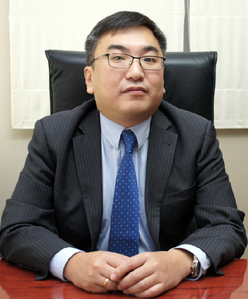
Population growth and democracy are encouraged
“The state supports population growth, and this year we reached about three million people. Our government has a special policy to support families. For example, if mothers have a fourth child they get a medal from the state. Our government encourages large families and provides subsidies for families with children. Under the socialist government we were quite successful in healthcare and education. Since the 1990s, when we adopted capitalism, everything has been changing. Basic healthcare and education are still free but there are private schools, hospitals and so on. There are more choices and options, which is better of course.
“We have been making a big political and economic transition since 1990. Mongolia followed in the footsteps of Eastern European countries in implementing reforms, and we have been quite successful making the transition from centrally-planned economy and one party system to multi-party democracy and free-market economy.
“In terms of democracy and freedom, our country has a very good record and this is supported by the international community. For example, from 2011 to 2013 Mongolia was the chair of the Community of Democracies and in 2013 hosted the ministerial conference of the Community of Democracies. During Mongolia’s presidency of this important international movement for democracy, we carried out the reforms in the Community by setting up a Governing Council, Executive Office and an office of standing General Secretariat.
“Moreover, we instituted a working group on Education for Democracy, which initiated a UN resolution on Education for Democracy. Under this resolution, the UN Secretary-General issues a report on education for democracy and the issue is discussed within the UN. This year we are chair of the Freedom Online Coalition and the coalition’s international conference was held in Ulaanbaatar in May.
“In fact, Mongolia was the first Asian country to lead this important community of like-minded countries. We also share our experiences in promoting democracy, human rights and market economy with other developing countries such as Kyrgyzstan, Myanmar and Afghanistan, by organizing special courses and trainings through a foundation initiated by Mongolian President Elbegdorj. These days, we are running for the first time for a membership of the UN Human Rights Council, the election of which will take place very soon.
“Mongolia is also attracting a lot of investment. For example, the biggest Australian mining company, Rio Tinto, is investing in mining operations. As for Thailand, Bumrungrad International Hospital has made an investment in Mongolia, and so has the Banpu group, a mining business. In recent years there has been a mining boom in Mongolia. We are very rich in resources like coal, gold, copper, molybdenum and other minerals.
“Unfortunately, our trade volume with Thailand is very small and this is an area we want to focus on. We import rice, sugar, some technical equipment and paper. Our geographical location and transportation costs put us at a disadvantage in terms of trade,” admitted the ambassador.
Bilateral ties and visits
“We established diplomatic ties with Thailand in 1974, the year I was born. Last year we celebrated the 40th anniversary. Bilateral activities have been on the upswing since the early 1990s. In fact, Thailand was one of the first countries in Southeast Asia to support our democratic reforms. Our good relations are reflected in many high-level exchange visits. HRH Princess Maha Chakri Sirindhorn has visited Mongolia two times, in 1992 and in 2009. Thanks to her visits, Thailand has become very well known to Mongolians in general. Our president, prime minister and speaker of the parliament have all visited Thailand.
“On the Thai side there have also been some important political visitors, including the speakers of the Senate and House of Representative. Former Thai Prime Minister Yingluck Shinawatra visited Mongolia in May of 2013. She was the first Thai PM to come to Mongolia. During her visit, our governments signed an agreement to set up the Consultative Body on Bilateral Cooperation.
“Following up on the agreement, we are currently working with our Thai counterparts to convene the first session of the Consultative Body. This inter-governmental mechanism is designed to stimulate interaction in all areas including cooperation between the business and private sectors in our two countries. For me personally this mechanism is also very important because one of my primary goals during my time here is to firm up our economic and trade ties.
“People-to-people contacts are also very important. We have a no-visa agreement with Thailand. Thai nationals can stay 30 days in Mongolia without a visa and our citizens can stay in Thailand for the same period.”
Tourism
“Between 8,000 and 10,000 Mongolians visit Thailand annually and Thailand is becoming a very popular destination for my countrymen. They come for leisure and also for medical reasons. Unfortunately, not so many Thais visit Mongolia. It is a very modest number, maybe a few hundred. Therefore, I want to encourage more people to come to Mongolia.
“Although we are geographically quite apart we share some similarities, like religion. We are both Buddhist countries. We also share similarities in tradition and culture. I am sure many Thai tourists would love Mongolia. I strongly urge Thai and other foreign tourists to travel to and through Mongolia and experience our hospitality, nomadic lifestyle and pristine natural beauty.
“If Thai tourists travel to China they can take a train to Mongolia. It is very popular among Western tourists to travel by the Trans-Siberian Railway. Young people from Western countries like to travel from Beijing to Ulaanbaatar and then to Moscow. It is one railway.
“In the past, there was a direct charter flight connecting Bangkok and Ulaanbaatar run by a private Mongolian company, but unfortunately they stopped the service. There are plans to resume direct flights, but currently you have to fly to Ulaanbaatar by way of Hong Kong, Beijing or Seoul. The shortest way is through Beijing.
Sports and food
“Mongolia has a tradition of excelling in some sports, like wrestling, judo and boxing. Despite our small population, our athletes have won many medals in freestyle wrestling, judo, boxing and shooting, in a number of Olympic Games starting from the Mexico Olympics of 1968. The Beijing and London Olympics were both a big success for the Mongolian national team. For example, in 2008 Beijing Olympic Games we won two gold and two silver medals in judo, boxing and shooting. It was the first time that Mongolia won gold medals. The London Olympics-2012 was also great with two silvers and three bronzes. I think that these are impressive results for a nation with just three million people.
“There are also some very well-known Mongolian sumo wrestlers, and in fact all three current yokozunas, or grand champions, of Japanese professional sumo are Mongolians. We are very good in archery, shooting, and of course, horseback riding. There’s a saying that goes, ‘A Mongolian is born on the horse and dies on the horse.’ The national festival of Mongolia is called Naadam, and the highlight is the competition in the three manly games of archery, wrestling and horse racing.
“Mongolia has a distinct cuisine that features mostly meat dishes which are very tasty because livestock feed on green pasture land. It is very healthy. Some of our foods come originally from China and some from Russia and Europe. There’s a strong culinary influence from our neighbours. We have our traditional food, but it is getting closer to European food. This is because in the past we were very close to Eastern Europe as well as to Russia. So we had a lot of influence from Europe. Mongolia is probably the only Asian country where chopsticks aren’t used. We use forks, knives and spoons.”
Personal
In his free time Mr Tugsbilguun likes to read, especially history and literature. “I like to ride horses, but I don’t know where to do it here. Now I mostly just watch sports like football, wrestling and sumo. For the time being I am mostly concentrating on my work. The retirement age for public servants in Mongolia is 60, sometimes 65, so I have at least another 20 years to go in the MFA.
“What I do after this assignment is up to the ministry to decide, but it doesn’t really matter. I will be doing a job I like very much, either at home or abroad. I have never regretted my choice of profession. Maybe it is a family tradition. However, it’s too early to tell if my two sons will be diplomats. The older one who is now 11 is more interested in computers and IT. The younger one is only two. He keeps me and especially my wife busy. She helps me a lot too, but she isn’t doing official work for the embassy.”
“The state supports population growth, and this year we reached about three million people. Our government has a special policy to support families. For example, if mothers have a fourth child they get a medal from the state. Our government encourages large families and provides subsidies for families with children. Under the socialist government we were quite successful in healthcare and education. Since the 1990s, when we adopted capitalism, everything has been changing. Basic healthcare and education are still free but there are private schools, hospitals and so on. There are more choices and options, which is better of course.
“We have been making a big political and economic transition since 1990. Mongolia followed in the footsteps of Eastern European countries in implementing reforms, and we have been quite successful making the transition from centrally-planned economy and one party system to multi-party democracy and free-market economy.
“In terms of democracy and freedom, our country has a very good record and this is supported by the international community. For example, from 2011 to 2013 Mongolia was the chair of the Community of Democracies and in 2013 hosted the ministerial conference of the Community of Democracies. During Mongolia’s presidency of this important international movement for democracy, we carried out the reforms in the Community by setting up a Governing Council, Executive Office and an office of standing General Secretariat.
“Moreover, we instituted a working group on Education for Democracy, which initiated a UN resolution on Education for Democracy. Under this resolution, the UN Secretary-General issues a report on education for democracy and the issue is discussed within the UN. This year we are chair of the Freedom Online Coalition and the coalition’s international conference was held in Ulaanbaatar in May.
“In fact, Mongolia was the first Asian country to lead this important community of like-minded countries. We also share our experiences in promoting democracy, human rights and market economy with other developing countries such as Kyrgyzstan, Myanmar and Afghanistan, by organizing special courses and trainings through a foundation initiated by Mongolian President Elbegdorj. These days, we are running for the first time for a membership of the UN Human Rights Council, the election of which will take place very soon.
“Mongolia is also attracting a lot of investment. For example, the biggest Australian mining company, Rio Tinto, is investing in mining operations. As for Thailand, Bumrungrad International Hospital has made an investment in Mongolia, and so has the Banpu group, a mining business. In recent years there has been a mining boom in Mongolia. We are very rich in resources like coal, gold, copper, molybdenum and other minerals.
“Unfortunately, our trade volume with Thailand is very small and this is an area we want to focus on. We import rice, sugar, some technical equipment and paper. Our geographical location and transportation costs put us at a disadvantage in terms of trade,” admitted the ambassador.
Bilateral ties and visits
“We established diplomatic ties with Thailand in 1974, the year I was born. Last year we celebrated the 40th anniversary. Bilateral activities have been on the upswing since the early 1990s. In fact, Thailand was one of the first countries in Southeast Asia to support our democratic reforms. Our good relations are reflected in many high-level exchange visits. HRH Princess Maha Chakri Sirindhorn has visited Mongolia two times, in 1992 and in 2009. Thanks to her visits, Thailand has become very well known to Mongolians in general. Our president, prime minister and speaker of the parliament have all visited Thailand.
“On the Thai side there have also been some important political visitors, including the speakers of the Senate and House of Representative. Former Thai Prime Minister Yingluck Shinawatra visited Mongolia in May of 2013. She was the first Thai PM to come to Mongolia. During her visit, our governments signed an agreement to set up the Consultative Body on Bilateral Cooperation.
“Following up on the agreement, we are currently working with our Thai counterparts to convene the first session of the Consultative Body. This inter-governmental mechanism is designed to stimulate interaction in all areas including cooperation between the business and private sectors in our two countries. For me personally this mechanism is also very important because one of my primary goals during my time here is to firm up our economic and trade ties.
“People-to-people contacts are also very important. We have a no-visa agreement with Thailand. Thai nationals can stay 30 days in Mongolia without a visa and our citizens can stay in Thailand for the same period.”
Tourism
“Between 8,000 and 10,000 Mongolians visit Thailand annually and Thailand is becoming a very popular destination for my countrymen. They come for leisure and also for medical reasons. Unfortunately, not so many Thais visit Mongolia. It is a very modest number, maybe a few hundred. Therefore, I want to encourage more people to come to Mongolia.
“Although we are geographically quite apart we share some similarities, like religion. We are both Buddhist countries. We also share similarities in tradition and culture. I am sure many Thai tourists would love Mongolia. I strongly urge Thai and other foreign tourists to travel to and through Mongolia and experience our hospitality, nomadic lifestyle and pristine natural beauty.
“If Thai tourists travel to China they can take a train to Mongolia. It is very popular among Western tourists to travel by the Trans-Siberian Railway. Young people from Western countries like to travel from Beijing to Ulaanbaatar and then to Moscow. It is one railway.
“In the past, there was a direct charter flight connecting Bangkok and Ulaanbaatar run by a private Mongolian company, but unfortunately they stopped the service. There are plans to resume direct flights, but currently you have to fly to Ulaanbaatar by way of Hong Kong, Beijing or Seoul. The shortest way is through Beijing.
Sports and food
“Mongolia has a tradition of excelling in some sports, like wrestling, judo and boxing. Despite our small population, our athletes have won many medals in freestyle wrestling, judo, boxing and shooting, in a number of Olympic Games starting from the Mexico Olympics of 1968. The Beijing and London Olympics were both a big success for the Mongolian national team. For example, in 2008 Beijing Olympic Games we won two gold and two silver medals in judo, boxing and shooting. It was the first time that Mongolia won gold medals. The London Olympics-2012 was also great with two silvers and three bronzes. I think that these are impressive results for a nation with just three million people.
“There are also some very well-known Mongolian sumo wrestlers, and in fact all three current yokozunas, or grand champions, of Japanese professional sumo are Mongolians. We are very good in archery, shooting, and of course, horseback riding. There’s a saying that goes, ‘A Mongolian is born on the horse and dies on the horse.’ The national festival of Mongolia is called Naadam, and the highlight is the competition in the three manly games of archery, wrestling and horse racing.
“Mongolia has a distinct cuisine that features mostly meat dishes which are very tasty because livestock feed on green pasture land. It is very healthy. Some of our foods come originally from China and some from Russia and Europe. There’s a strong culinary influence from our neighbours. We have our traditional food, but it is getting closer to European food. This is because in the past we were very close to Eastern Europe as well as to Russia. So we had a lot of influence from Europe. Mongolia is probably the only Asian country where chopsticks aren’t used. We use forks, knives and spoons.”
Personal
In his free time Mr Tugsbilguun likes to read, especially history and literature. “I like to ride horses, but I don’t know where to do it here. Now I mostly just watch sports like football, wrestling and sumo. For the time being I am mostly concentrating on my work. The retirement age for public servants in Mongolia is 60, sometimes 65, so I have at least another 20 years to go in the MFA.
“What I do after this assignment is up to the ministry to decide, but it doesn’t really matter. I will be doing a job I like very much, either at home or abroad. I have never regretted my choice of profession. Maybe it is a family tradition. However, it’s too early to tell if my two sons will be diplomats. The older one who is now 11 is more interested in computers and IT. The younger one is only two. He keeps me and especially my wife busy. She helps me a lot too, but she isn’t doing official work for the embassy.”
H.E. Mr Tugsbilguun Tumurkhuleg in focus
Education
• Feb 2007 – Dec 2008: M.A. (International Relations) with honors, The Australian National University, Canberra, ACT, Australia.
• 1995 – 1999: B.A. in British Studies and International Affairs, School of Foreign Service, The National University of Mongolia.
• 1994 – 1995: Srinakharinwirot University, Bangkok, Thailand (Thai Language and Thai Studies Training Program).
• 1991: Soviet Secondary School # 2, Ulaanbaatar, Mongolia
Work experience
• Since Aug 2015: Ambassador of Mongolia to the Kingdom of Thailand and Permanent Representative to UNESCAP.
• Sept 2012 – July 2015: Director-
General, Department of Neighbouring Countries (Russia and China), Ministry of Foreign Affairs (MFA), Mongolia.
• Sept 2011 – Sept 2012: Deputy Chief of Mission and Counselor, Embassy of Mongolia in Australia
• Sept 2009 – Sept 2011: Deputy Director-General, Department of the Americas, Middle East and Africa, MFA, Mongolia.
• Feb – Sept 2009: Third Secretary, Department of the Americas, Middle East and Africa, MFA, Mongolia.
• 2004 – 2007: Attaché, Embassy of Mongolia in the Kingdom, Thailand.
• 2000 – 2004: Attaché, MFA, Mongolia.
• 1999 – 2000: Research Officer, Centre for Foreign Policy Studies, MFA, Mongolia.
List of publications
• Democracy in Central Asia: Authoritarian Regimes or Hybrid Regimes? The Mongolian Journal of International Affairs, No.18, 2013, pp.123-126.
• Does the Shanghai Cooperation Organization Represent an Example of a Military Alliance, in Eurasia’s Ascent in Energy and Geopolitics (eds. Robert E. Bedeski and Niklas Swanstrom), Routledge, New York and London, 2012, pp.179-198.
• Does the Shanghai Cooperation Organization Represent an Example of a Military Alliance, The Mongolian Journal of International Affairs, No.15-16, 2008-2009, pp.59-107.
Decorations:
• Medal of Honoured Labourer (2011).
• Medal in commemoration of the 90th Anniversary of the People’s Revolution (2011).
Education
• Feb 2007 – Dec 2008: M.A. (International Relations) with honors, The Australian National University, Canberra, ACT, Australia.
• 1995 – 1999: B.A. in British Studies and International Affairs, School of Foreign Service, The National University of Mongolia.
• 1994 – 1995: Srinakharinwirot University, Bangkok, Thailand (Thai Language and Thai Studies Training Program).
• 1991: Soviet Secondary School # 2, Ulaanbaatar, Mongolia
Work experience
• Since Aug 2015: Ambassador of Mongolia to the Kingdom of Thailand and Permanent Representative to UNESCAP.
• Sept 2012 – July 2015: Director-
General, Department of Neighbouring Countries (Russia and China), Ministry of Foreign Affairs (MFA), Mongolia.
• Sept 2011 – Sept 2012: Deputy Chief of Mission and Counselor, Embassy of Mongolia in Australia
• Sept 2009 – Sept 2011: Deputy Director-General, Department of the Americas, Middle East and Africa, MFA, Mongolia.
• Feb – Sept 2009: Third Secretary, Department of the Americas, Middle East and Africa, MFA, Mongolia.
• 2004 – 2007: Attaché, Embassy of Mongolia in the Kingdom, Thailand.
• 2000 – 2004: Attaché, MFA, Mongolia.
• 1999 – 2000: Research Officer, Centre for Foreign Policy Studies, MFA, Mongolia.
List of publications
• Democracy in Central Asia: Authoritarian Regimes or Hybrid Regimes? The Mongolian Journal of International Affairs, No.18, 2013, pp.123-126.
• Does the Shanghai Cooperation Organization Represent an Example of a Military Alliance, in Eurasia’s Ascent in Energy and Geopolitics (eds. Robert E. Bedeski and Niklas Swanstrom), Routledge, New York and London, 2012, pp.179-198.
• Does the Shanghai Cooperation Organization Represent an Example of a Military Alliance, The Mongolian Journal of International Affairs, No.15-16, 2008-2009, pp.59-107.
Decorations:
• Medal of Honoured Labourer (2011).
• Medal in commemoration of the 90th Anniversary of the People’s Revolution (2011).

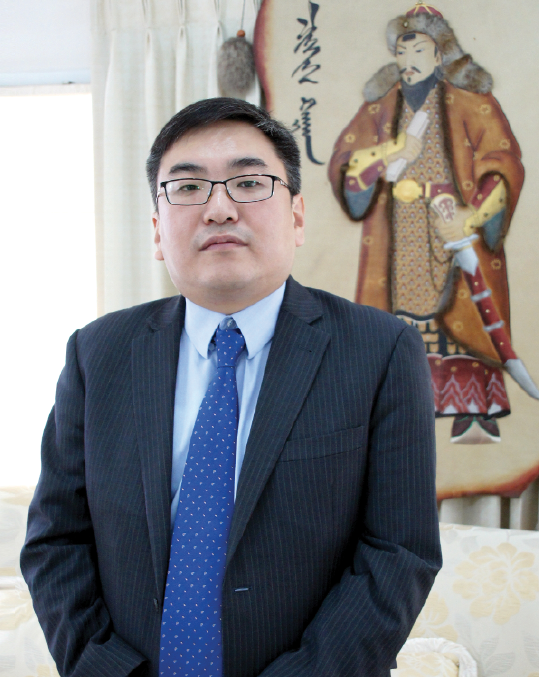
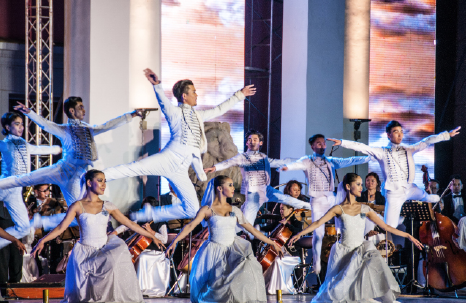
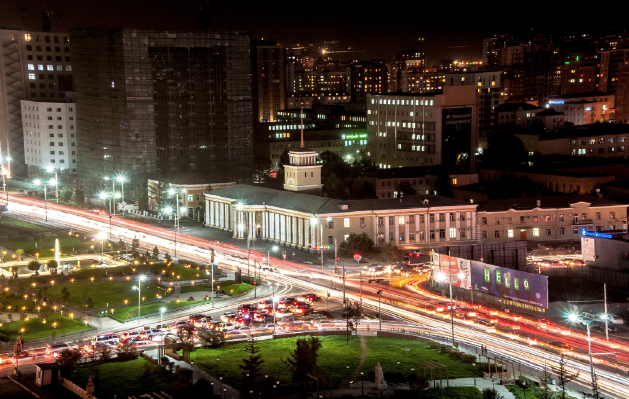
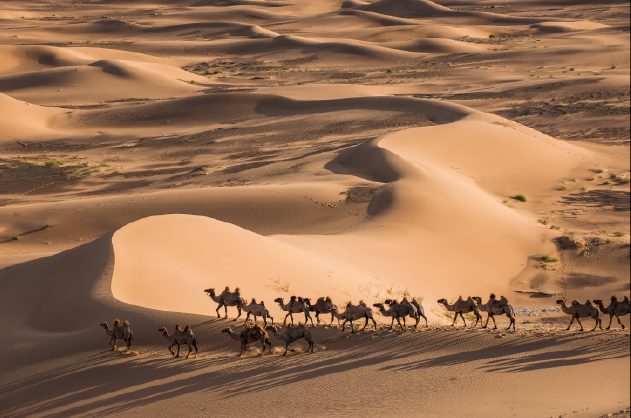
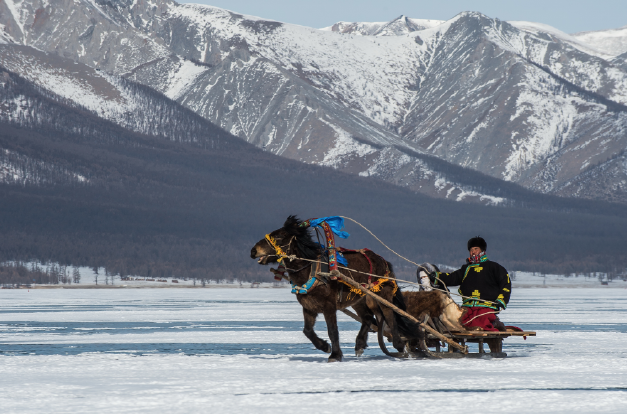
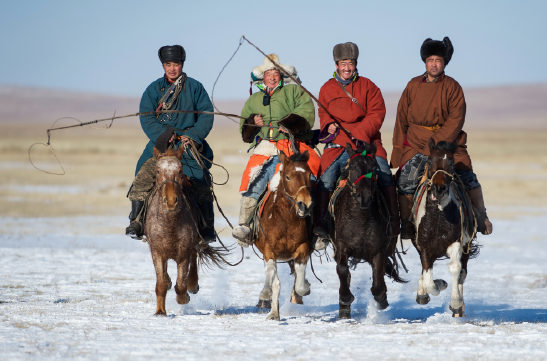
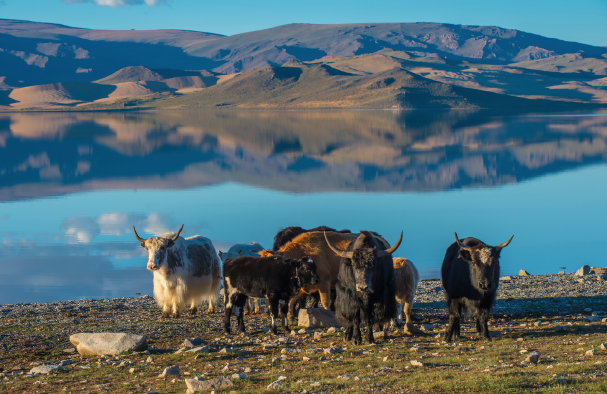
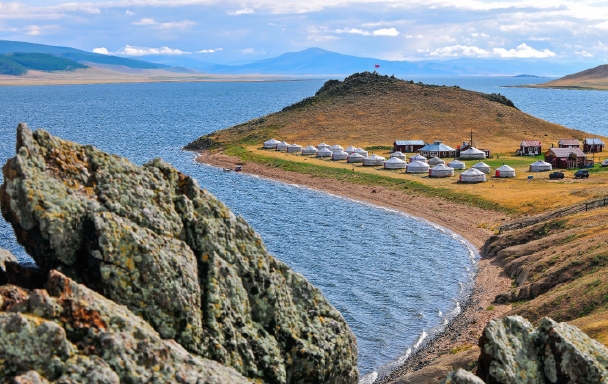
 RSS Feed
RSS Feed
















